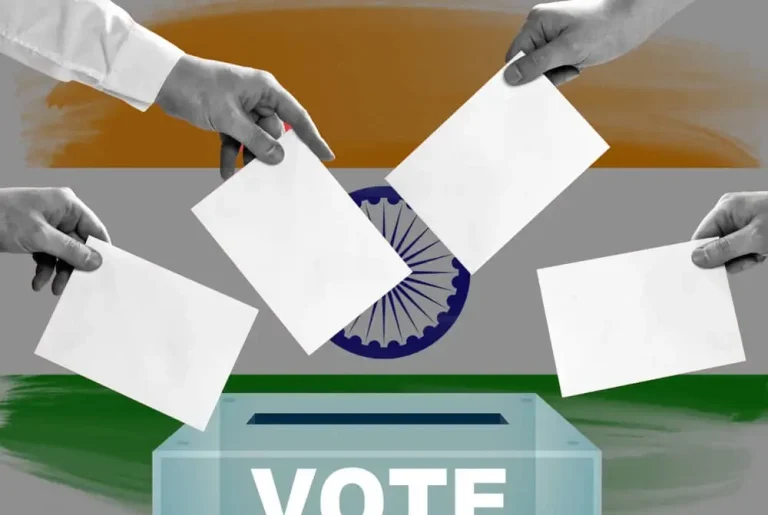India is currently holding its general elections, which will run from April 19 to June 1, 2024, in seven phases to elect 543 members of the Lok Sabha, the lower house of the Indian Parliament. Amid these crucial 2024 democratic elections in India, the integrity of the electoral process is threatened by an array of cybersecurity challenges.
These threats range from international cyberattacks targeting election infrastructure to internal attacks aimed at undermining the system. As the world’s largest democracy holds its elections, the appearance and sophistication of these phenomena cyber the threats intensified.
The electoral battlefield is also witnessing unprecedented use of AI-generated content and deepfakes by political entities and foreign agents, increasing tensions and manipulating public perception.
This article delves deeper into the complex cyber security electoral landscape in India, examining the impact of technological exploitation, foreign interference and internal political conflicts on the country’s democratic foundations.
India Elections 2024: Experts warn of a ‘year of deception’
The current elections in India are proving particularly difficult, with cybersecurity experts predicting a tumultuous voting session. The integrity of the voting process is deeply compromised by the widespread use of deepfakes and the dissemination of false information generated by artificial intelligence.
While India uses its own set of cybersecurity measures to combat AI-generated misinformation, Meta recently created a dedicated fact-checking hotline on WhatsApp in collaboration with the Misinformation Combat Alliance (MCA). This initiative aims to enable users to identify and report deepfakes, offering support in multiple languages, including English, Hindi, Tamil and Telugu.
Cybersecurity industry leaders, such as IBM and McAfee, highlight the significant challenges that India is expected to face in the ongoing elections in India. Rapid advancements in AI technology enable cybercriminals with powerful tools such as deepfakes, voice cloning and advanced malware, increasing the complexity of threats to the electoral process.
The power of artificial intelligence (AI) in the hands of cybercriminals has been highlighted by Pratim Mukherjeesenior director of engineering at McAfee, which also highlights the urgent need for proactive cybersecurity solutions to reduce the risks posed by developing threats.
Moreover, amid one of the most contentious election seasons in India, the leader of the opposition in the Kerala Legislative Assembly VD Satheesan has called for dismissal of cases relating to a deepfake video purportedly directed against CPM leader KK Shailaja. Implying a nexus between the CPM and the BJP in the state, he accused CPM leaders of spreading false information and attacked the government’s handling of police operations during the annual Hindu temple festival, Thrissur Pooram. Thrissur Pooram is an annual Hindu festival held in Kerala, India. It is one of the largest and most colorful temple festivals in India, attracting large crowds and considerable media attention.
Indian elections 2024: foreign interference and internal threats
Foreign interference poses another set of threats to the integrity of India’s electoral process. Chinese hackers, in particular, have been identified as potential adversaries seeking to manipulate public opinion and influence election results.
According to a report from MicrosoftChinese hackers and agents of influence, as well as North Korean agents, may seek to interfere with the electoral process in India and other high-profile elections around the world.
Using AI-generated content to influence public opinion is another risk However, this is not the only thing eroding the integrity of the 2024 Indian general elections.
India’s 2024 elections face another threat from domestic political rivalries, with allegations of cyberattacks and disinformation campaigns emerging from India. The Vadakara Lok Sabha constituency illustrates this phenomenon, with the CPI(M) and the Congress accusing each other of launching vicious cyberattacks. The CPI(M), or Communist Party of India (Marxist), and the Congress are major political entities in India.
The escalation of these allegations until Electoral Commission complicates decision-making for the general public to the extent that misinformation influences the choices made by voters.
Previously, on a similar note, the attempted hacking of the Ram Mandir website during the Pran Pratishtha ceremony is another reminder of the cybersecurity challenges facing India’s cultural and religious institutions in the upcoming elections. The Ram Mandir refers to a new temple under construction in Ayodhya, a site of historical and religious significance and a focal point of long-standing and sometimes controversial political and religious debates in India.
The cyber attack on Indian culture: what to expect and how to protect yourself?
These incidents highlight the vulnerability of electronic platforms to cyberattacks, raising concerns about the broader implications for cybersecurity in the country. As India’s cultural and religious heritage intersects with the 2024 Indian elections, the need for better cybersecurity measures Cannot be ignored.
To strengthen cybersecurity defenses, proactive measures and group efforts are essential as India fights the threat of cyberattacks on multiple fronts. To reduce the risks associated with foreign interference and AI-generated disinformation, cooperation between government agencies, cybersecurity professionals, and technology companies is vital. Public awareness campaigns can be very effective in informing the public about the risks posed by fake news and the value of being vigilant in the digital age.
Cybersecurity measures taken during India’s 2024 elections are expected to attract global attention as the threat of cyberattacks is significant. Protecting the integrity of the electoral process will require a unified effort from all parties involved. Through the strategic use of technology and collaborative initiatives, India aims to address cybersecurity challenges and maintain democratic integrity.
Media Disclaimer: This report is based on internal and external research obtained through various means. The information provided is for reference purposes only and users take full responsibility for their reliance on it. The Cyber Express assumes no responsibility for the accuracy or consequences of the use of this information.


